Uncategorized
In a Ukrainian city liberated from Russia, local Jewish leaders are being accused of collaboration
(JTA) — When Russian troops poured across the Ukrainian border in March, thousands fled from the cities that would be first in their path. But in Kherson, the southern port city with strategic value to the Russians, Rabbi Yosef Itzhak Wolff decided to stay put.
His decision to remain put him in line with the philosophy of his Jewish movement, Chabad, whose rabbis typically commit to the cities where they are stationed and stay there through thick and thin.
But his decision could also cost him the ability to serve Kherson’s Jews. According to a report this week in the New York Times, Wolff is now in Germany, concerned because some in Kherson accuse him of collaborating with the Russian forces.
Meanwhile, a member of his Jewish community is facing life in prison over his actions during the chaotic early days of the war, according to the New York Times report.
Russia captured Kherson on March 2, 2022, and for months, the city suffered a brutal occupation that resulted in hundreds dead and scores more “disappeared” or tortured, according to Human Rights Watch.
Among those living in the occupied city was Wolff, an Israel-born rabbi who arrived in Ukraine nearly 30 years ago, just after the fall of the Soviet Union and Ukraine’s independence. For the past 13 years, he had presided over a Jewish community in Kherson estimated before the war at 8,000 people.
In the early days of the war, Wolff’s work to supply food, medicine and at least some semblance of a joyous Purim to his community was highly publicized.
During one trip, the Times of Israel reported, he dodged bullets shuttling food back to the city from the border with Crimea, where his brother is also a rabbi. In another, according to Chabad.org, he went out to deliver food even as Russian tanks rolled through the town.
“Despite heavy fighting in the streets of Kherson, Rabbi Yosef Wolff did not abandon his community for a moment, remaining in the war-torn city through it all and serving the local population,” Rabbi Motti Seligson, a spokesperson for the Chabad movement, told the Jewish Telegraphic Agency. He called Wolff a “true hero of the Jewish people and for people of good conscience everywhere.”
Before the Holocaust, Kherson was a major center of Jewish life, with some 26 synagogues, but now, there is only Wolff’s. And before the war, it was like Chabad centers around the world: serving a local community, but also famously welcoming to unfamiliar faces, including foreign visitors.
Rabbi Yosef Yitzchak Wolff and mayor of Kherson Volodymyr Mykolaienko light Hanukkah candles, Dec. 19, 2017, in Kherson, Ukraine. (PLes Kasyanov/Global Images Ukraine via Getty Images)
Opening the doors to newcomers took on added gravity after the war began and Russians streamed into Kherson. For much of the year, it was unclear whether Ukraine would regain control of the city, or whether it would become like Crimea and remain under Russian occupation. But last month, Ukraine liberated Kherson, generating scenes of jubilation — and putting anyone perceived as collaborating with the Russian army under suspicion.
Some of that suspicion landed on Wolff, who had allowed Russian soldiers to pray in his synagogue. The soldiers were Jewish officers who had arrived with armed guards, he told the New York Times.
In the days after liberation, he left Kherson, and Ukraine, for Germany. Now, with efforts to penalize collaborators underway, he told the newspaper that he is not sure when or if he will return.
Among those who remained in Kherson was a prominent member of the Jewish community who is now being prosecuted for his choices amid the messy reality of occupation.
Illia Karamalikov, a nightclub owner and member of Kherson’s city council, was close to Wolff, frequently allowing Chabad to use his nightclub’s space for events, the rabbi told the New York Times.
In the early days of the occupation, Kherson descended into a state of lawlessness. The Ukrainian civil administration fled ahead of the Russian forces and, after conquering the city without much resistance, Russia took little responsibility for its administration, instead sending soldiers on to other targets such as neighboring regions of Odessa, Mykolaiv, Kryvyi Rih — Ukrainian president Voldymyr Zelensky’s hometown — and ultimately, Kyiv.
Looting was rampant, and cut off from power and supply lines, the thousands of people who remained in the city faced a real risk of starvation.
It was locals who managed to bring back some semblance of order. Karamalikov helped organize a 1,200-strong community patrol to enforce curfews and watch for looters.
A boy stands with Ukrainian flag in the central square of Kherson after the city was liberated from Russian occupation, Nov. 19, 2022. (Oleksii Samsonov/Global Images Ukraine via Getty Images)
It was in that role, according to the New York Times report, that he found himself face to face with a lost and confused Russian pilot, whom his men had taken into captivity. Karamalikov held the prisoner in a utility closet in his home for a night, before ultimately making the decision to return him to the Russian forces unharmed.
That earned him a 12-page indictment from Ukraine, as he ran afoul of new laws enacted at the outbreak of the war that stipulate that “cooperation with the aggressor state, its armed formations, or its occupation administration;” are punishable as acts of collaboration under Ukraine’s criminal code.
Many of those who spoke to the New York Times said the laws don’t account for the reality of living under occupation.
“All these people who ran away are judging us,” Wolff told the newspaper. “These are cruel times.”
Through returning the soldier, Karamalikov allegedly “organized the further participation of a Russian serviceman in aggression against Ukraine,” according to his indictment.
But many in Kherson are not sure what other option they had. Karamalikov’s community watch organization was a volunteer and non-military force whose limited power involved pressing looters into doing community service. To have harmed the soldier would have made them combatants against Russia.
“We wondered later: Should we have killed the soldier and kept it secret?” one of Karamalikov’s watchmen, Andriy Skvortsov told the New York Times. “But I’ve decided no, that wouldn’t have been good.”
“With a life in his hands, I can’t imagine Illia ever killing anyone,” Wolff told the newspaper. “What he did was the most humane decision he could make.”
—
The post In a Ukrainian city liberated from Russia, local Jewish leaders are being accused of collaboration appeared first on Jewish Telegraphic Agency.
Uncategorized
A border official mocked an attorney for observing Shabbat. Orthodox lawyers say the issue is not new.
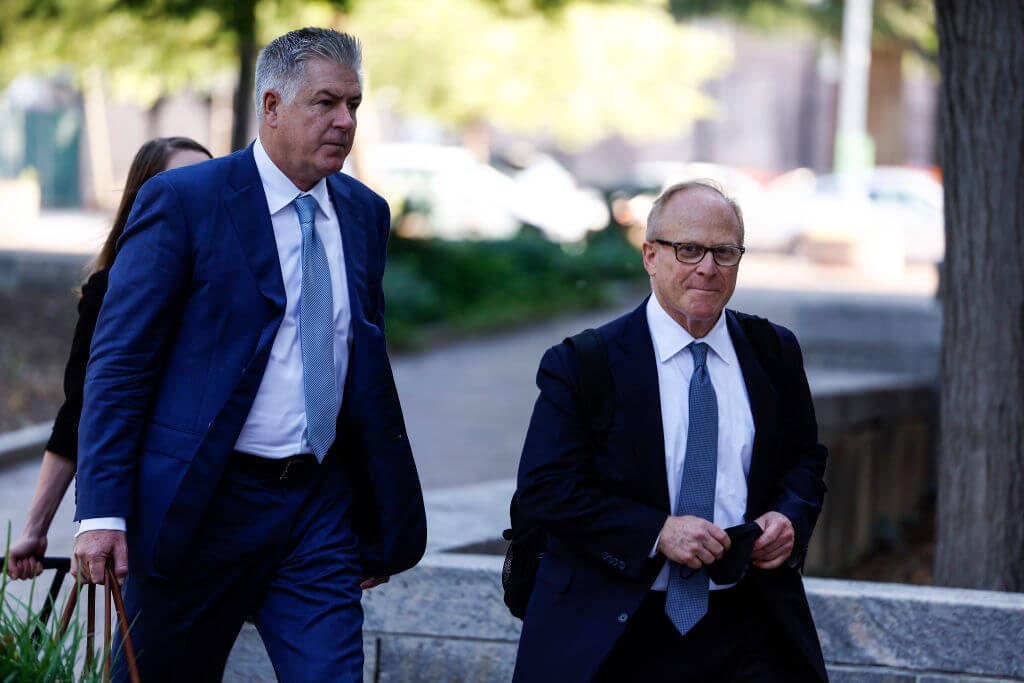
Gregory Bovino, the Border Patrol official who led immigration raids in Minneapolis, reportedly mocked the Jewish faith of Minnesota’s U.S. attorney during a phone call with other prosecutors in mid-January. According to The New York Times, Bovino complained that Daniel Rosen, an Orthodox Jew, was hard to reach over the weekend because he observes Shabbat and sarcastically pointed out that Orthodox Jewish criminals don’t take the weekends off.
The call took place at a moment of extreme tension in Minneapolis, as federal agents under Bovino’s command carried out an aggressive immigration crackdown that had already turned deadly. It came between the fatal shootings of Renée Good and Alex Pretti, both killed during enforcement operations, and amid fierce backlash from local officials and residents.
Bovino made the remarks in a derisive, mocking tone, the Times reported, casting Shabbat observance as a point of ridicule. Bovino had already drawn national attention for frequently wearing an olive double-breasted greatcoat with World War II-era styling, leading some critics to call him “Gestapo Greg” and accusing him of “Nazi cosplay.” Bovino, who pushed back on those comparisons, has since been reassigned.
Rosen, a Trump nominee, was confirmed as Minnesota’s U.S. attorney in October 2025 after a career in private practice and Jewish communal leadership. He has said that rising antisemitism helped motivate his decision to take the job, and that prosecuting hate crimes would be a priority for his office.
For many Orthodox Jewish lawyers, Bovino’s alleged remarks were not surprising. They echoed a familiar challenge: explaining that Shabbat — a full day offline — is not a lack of commitment, but a religious boundary that cannot be bent without being broken.
In a profession that prizes constant availability, that boundary can carry consequences. Some lawyers say it shows up in subtle ways: raised eyebrows, jokes about being unreachable, skepticism when they ask for time off. Others say it has shaped much bigger decisions, including how visibly Jewish they allow themselves to be at work.
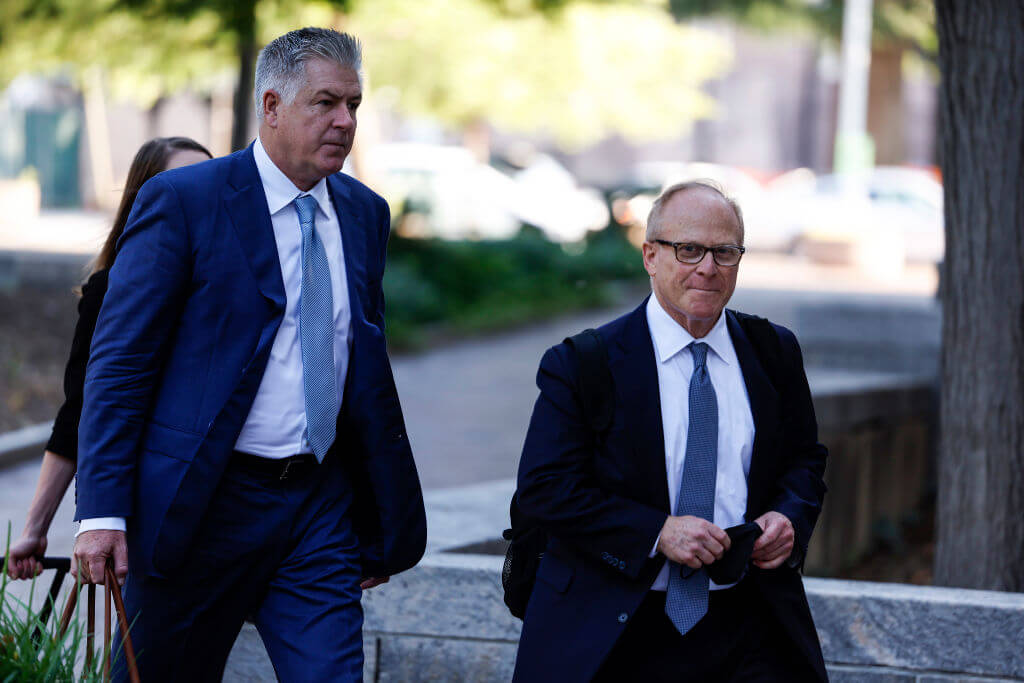
David Schoen, an Orthodox criminal defense attorney who served as lead counsel for President Donald Trump during his second impeachment trial, said he has long been mindful of how religious observance is perceived in the courtroom.
“I have made a conscious decision not to wear my yarmulke in front of a jury,” Schoen said, explaining that jurors often “draw stereotypes from what they see.”
Those concerns were reinforced by experience. Schoen said he has noticed a “definite difference in attitude” from some judges depending on whether he wore a yarmulke. In one case, he recalled, a Jewish judge pulled him aside during a jury trial and told him she thought he had made the right choice — a comment Schoen said he found disappointing.
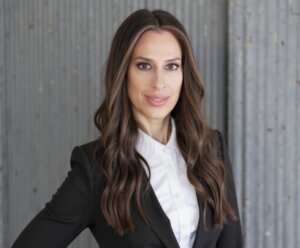
For Sara Shulevitz, a criminal defense attorney and former prosecutor, the Bovino episode brought back memories from early in her career.
Orthodox and the daughter of a Hasidic rabbi — now married to one — Shulevitz said her unavailability on Jewish holidays was often treated as a professional flaw rather than a religious obligation. “It held me back from getting promotions,” she said.
In court, the scrutiny could be blunt. “I was mocked by a Jewish judge for celebrating ‘antiquated’ Jewish holidays,” she said, recalling requests for continuances for Shemini Atzeret and Simchat Torah. In another case, she said, a judge questioned her request for time off for Shavuot and suggested she had already “taken off for Passover.”
When another judge assumed Passover always began on the same day in April, “I had to explain the Jewish lunar calendar in the middle of court while everyone was laughing,” she said.
Not every encounter, Shulevitz added, was rooted in hostility. Sometimes judges simply didn’t understand Orthodox practice. When she explained she couldn’t appear on a Jewish holiday, judges would suggest she join the hearing by Zoom — forcing her to explain that Orthodox Jews don’t use electrical devices on Shabbat or festivals.
The misunderstanding often slid into a familiar assumption. “They think you’re lazy,” she said. “It’s not laziness. Any Jewish woman knows how much work goes into preparing for Passover.”
Rabbi Michael Broyde, a law professor at Emory University who studies religious accommodation, said that Bovino’s alleged “derogatory remarks” are “sad and reflects, I worry, the antisemitic times we seem to be living in.”
He added that the criticism of Rosen reflected a basic misunderstanding of how law offices operate, calling it “extremely rare” for a lawyer’s religious practices to interfere with their obligations, especially when senior attorneys delegate work and courts routinely grant continuances.
“No one works 24/7,” Broyde said.
The episode echoed a similar Shabbat-related incident during Trump’s first term. In his 2022 memoir, former Trump trade adviser Peter Navarro described how a group sought to undermine Trump son-in-law Jared Kushner’s role in the 2020 campaign by scheduling a key White House meeting with Trump on a Saturday, knowing Kushner — who is Shabbat observant — would not attend. Navarro titled the chapter recounting the episode, “Shabbat Shalom and Sayonara.”
The tension between Jewish observance and public life is not new. Senator Joe Lieberman, the first observant Jew to run on a major-party presidential ticket, famously walked to the Capitol for a Saturday vote and ate fish instead of meat at receptions. His longtime Senate colleague Chris Dodd joked that he became Lieberman’s “Shabbos goy.”
Still, Schoen said, visibility can cut both ways. During Trump’s impeachment trial, while speaking on the Senate floor, he reached for a bottle of water and instinctively paused. With one hand holding the bottle, he used the other to cover his head — a makeshift yarmulke — before drinking.
The moment was brief, but it did not go unnoticed. In the days that followed, Schoen said he heard from young Jewish men and businesspeople who told him that seeing the gesture made them feel more comfortable wearing their own yarmulkes at work.
The attention, he said, was unexpected. But for some in the Orthodox community, it became a source of pride.
“I felt honored,” Schoen said.
My guess in all seriousness is that he normally wears a yarmulke and this was reflex. Schoen is modern Orthodox so that would make sense. But I defer to @jacobkornbluh https://t.co/MkKx6W03v2
— Jake Tapper 🦅 (@jaketapper) February 9, 2021
Jacob Kornbluh contributed additional reporting.
The post A border official mocked an attorney for observing Shabbat. Orthodox lawyers say the issue is not new. appeared first on The Forward.
Uncategorized
Deni Avdija becomes first Israeli to be selected as an NBA All-Star
(JTA) — Portland Trail Blazers star Deni Avdija’s meteoric rise has officially reached a new stratosphere, as the 25-year-old forward has become the NBA’s first-ever Israeli All-Star.
Avdija was named an All-Star reserve for the Western Conference on Sunday, an expected but deserved nod after the northern Israel native finished seventh in All-Star voting with over 2.2 million votes, ahead of NBA legends LeBron James and Kevin Durant. Avdija’s breakout performance this season has earned him repeated praise from James and others across the league.
Avdija’s star turn began last year in his first season with Portland, when he further captured the adoration of Jewish fans across Israel and the U.S. But he took another step forward this season, averaging 25.8 points, 6.8 assists and 7.2 rebounds per game. His points and assists clips are by far the best of his career, and rank 13th and 12th in the NBA, respectively. He’s considered a front-runner for the league’s Most Improved Player award.
For close observers of Israeli basketball, Avdija’s All-Star selection is the culmination of a promising career that began as a teenage star with Maccabi Tel Aviv and made him the first Israeli chosen in the top 10 in an NBA draft.
“Deni Avdija being named an NBA All-Star reserve is an unbelievable achievement in the mind of every Israeli basketball fan,” Moshe Halickman, who covers basketball for the popular Sports Rabbi website, wrote in an essay for the Jewish Telegraphic Agency. “This is a dream come true for many — a dream that became realistic and even a must-happen during his breakout season — but something that in his first five seasons in the NBA never came across as something that was going to be real.”
Halickman, who has covered Avdija in Washington, D.C., and in Israel, wrote that Avdija is not only considered the greatest Israeli hooper of all time, but perhaps the best athlete to come out of Israel, period.
Oded Shalom, who coached Avdija on Maccabi Tel Aviv’s Under-15 and Under-16 teams, echoed that sentiment in a recent profile of Avdija in The Athletic.
“Even though he is only 25, I think he is Israel’s most successful athlete in history,’’ Shalom said. “We’ve had some great gymnasts — and I hope everyone forgives me for saying it, because we’ve had some great athletes — but I think Deni has become the greatest.”
Avdija’s ascension has also come against the backdrop of the Gaza war and a reported global rise in antisemitism, which he has said affects him personally.
“I’m an athlete. I don’t really get into politics, because it’s not my job,” Avdija told The Athletic. “I obviously stand for my country, because that’s where I’m from. It’s frustrating to see all the hate. Like, I have a good game or get All-Star votes, and all the comments are people connecting me to politics. Like, why can’t I just be a good basketball player? Why does it matter if I’m from Israel, or wherever in the world, or what my race is? Just respect me as a basketball player.”
Now, Avdija’s talents will be on display at the NBA All-Star Game, on Sunday, Feb. 15, in Los Angeles.
The post Deni Avdija becomes first Israeli to be selected as an NBA All-Star appeared first on The Forward.
Uncategorized
Democratic leader says GOP-led Congress boosted ICE funding while Jewish security is underfunded
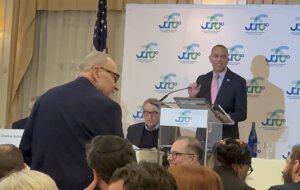
House Democratic Leader Hakeem Jeffries used a Jewish gathering in New York on Sunday to spotlight what he described as an imbalance in federal priorities, building on outrage over the Trump administration’s violent crackdown in Minneapolis that resulted in two fatal shootings.
Jeffries criticized the Republican-controlled Congress for boosting immigration enforcement funding by billions while, he said, security funding for Jewish institutions continues to lag amid rising antisemitic threats. He said that in the One Big Beautiful Bill Act, which passed last July and included cuts to Medicaid, the Department of Homeland Security received an additional $191 billion, including $75 billion for ICE.
“If that can happen, then the least that we can do is ensure that this vital security grant program is funded by hundreds of millions of dollars more to keep the Jewish community and every other community safe,” Jeffries said.
The Nonprofit Security Grant Program, established by Congress in 2005 and administered by FEMA under the Department of Homeland Security, provides funding to nonprofits, including houses of worship, to strengthen security against potential attacks. Congress began significantly increasing funding in 2018 after a wave of synagogue attacks nationwide, bringing the program to $270 million today.
Major Jewish organizations are pushing to raise funding to $500 million amid rising antisemitic threats. Last year, the Trump administration briefly froze the program as part of broader agency cuts, and some groups have been reluctant to apply because applicants must affirm cooperation with federal immigration enforcement.
Jeffries said House Democrats strongly support an increase to $500 million annually to meet escalating security needs. “It’s got to be an American issue, because that is what combating antisemitism should be all about,” he said.
The breakfast, previously held at the offices of the UJA-Federation of New York, was held this year for the first time in the events hall at Park East Synagogue, which was the site of a pro-Palestinian protest last year that featured antisemitic slogans and posters.
Sunday’s program also included remarks from Senate Minority Leader Chuck Schumer, who told the audience that his support for Jewish security funding will only continue growing under his leadership, calling it his “baby.”
“As long as I’m in the Senate, this program will continue to grow from strength to strength, and we won’t let anyone attack it or undo it,” Schumer said.
Rep. Jerry Nadler, the co-chair of the Congressional Jewish Caucus who is retiring at the end of the year after 36 years in the House, also spoke at the event. Nadler, like several other Democrats in recent months, compared the actions of ICE agents to the Gestapo, Nazi Germany’s secret police. The comparison has drawn sharp criticism from Democrats, Republicans and Jewish leaders.
Support for Israel aid
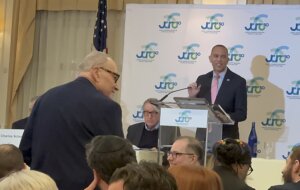
Both Schumer and Jeffries vowed in their remarks to continue supporting U.S. military assistance to Israel, amid increasing calls within the party for sharper opposition to Israel. Polls show that Democratic voters are increasingly sympathetic to Palestinians. In July, a record 27 Senate Democrats, a majority of the caucus, supported a pair of resolutions calling for the blocking of weapons transfers to Israel.
“I think it’s the humane thing to do to ensure that Israel has a right to exist as a Jewish and democratic state and eternal homeland for the Jewish people,” Jeffries said. The House Minority Leader, who has cultivated close ties with Jewish leaders since his election in 2012, noted that he has visited Israel nine times. He recalled that on his recent trip, Israel’s ambassador to the U.S., Yechiel Leiter, joked that it might be time for Democrats to buy property in Jerusalem.
Schumer, the nation’s highest-ranking Jewish elected official, has seen his popularity decline and has faced calls to step down from his role as leader. On Sunday, he pledged that he “will always fight to give Israel what it needs to protect itself from the many who want to wipe Israel off the face of the map.”
The post Democratic leader says GOP-led Congress boosted ICE funding while Jewish security is underfunded appeared first on The Forward.


